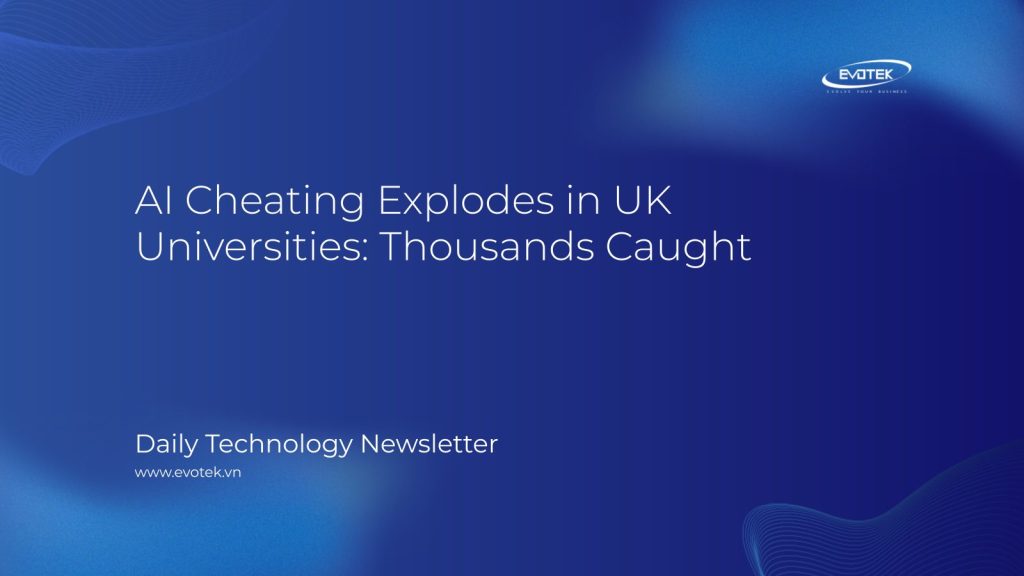A recent investigation reveals a surge in AI-assisted cheating among UK university students, with nearly 7,000 cases detected in 2023-24. Is this just the tip of the iceberg?
The Rise of AI Cheating
The Guardian’s probe highlights a significant shift in academic misconduct. While traditional plagiarism is declining, the misuse of AI tools like ChatGPT is skyrocketing. Data shows 5.1 proven AI cheating cases per 1,000 students in 2023-24, up from 1.6 the previous year.
Universities Struggle to Adapt
Universities are grappling with adapting assessment methods to combat AI-driven cheating. Over a quarter of institutions didn’t even categorize AI misuse separately in 2023-24, suggesting a slow response to the rapidly evolving landscape. Experts believe many more cases go undetected, with one study showing AI-generated work evading detection in 94% of submissions.
Students’ Perspective
Students admit to using AI for brainstorming, structuring essays, and generating ideas. Some even employ AI to “humanize” the generated text, bypassing detection software. However, some students also see AI as a valuable tool, particularly for those with learning difficulties like dyslexia.
The Future of Assessment
Academics emphasize the need to focus on skills that AI cannot easily replicate, such as communication and critical thinking. They advocate for engaging students more actively in assessment design and understanding the purpose of academic tasks.
Government Response
The government acknowledges AI’s potential to transform education but stresses the need for careful consideration and risk mitigation to prepare students for the future job market.
Source: The Guardian
Keywords: AI cheating, UK universities, academic misconduct, ChatGPT, plagiarism, higher education, assessment, artificial intelligence

 日本語
日本語 한국어
한국어 Tiếng Việt
Tiếng Việt 简体中文
简体中文